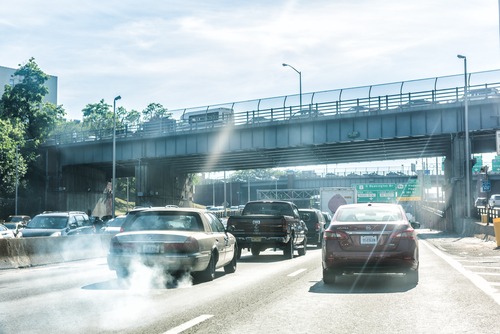
U.S. Reps. Lloyd Doggett (D-TX), Earl Blumenauer (D-OR) and a group of 20 lawmakers introduced the Green Transportation Act in the House on Tuesday.
The legislation directs cities and states to reduce greenhouse gas emissions in the transportation sector by establishing greenhouse gas emission reduction targets and using those targets in their public transit and highway planning.
“The global climate crisis requires a bold, well-coordinated response,” Doggett said. “Our bill creates a blueprint for homegrown leadership to reduce pollution and modernize the fossilized thinking that has dominated our transportation system. This bill encourages local leaders to strengthen our roadmaps to combat climate change while providing federal resources to support their efforts.”
The bill would require the U.S. Department of Transportation (DOT) to work with the Environmental Protection Agency (EPA) to establish national goals and performance measures to reduce greenhouse gas emissions. From there, state and metropolitan planning organizations (MOPs) would use those national performance measures as a guide when establishing their own greenhouse gas emission reduction targets. The bill would support the MOPs through Fixing America’s Surface Transportation (FAST) Act funding. The bill also directs the DOT to be a clearinghouse of best practices for standardized models and methodologies for measuring and monitoring greenhouse gas emissions.
Additionally, the bill would require the DOT to annually evaluate carbon dioxide emissions per capita on public roads in each state and issue progress reports to ensure that states and MOPs are reaching their goals. States that show significant progress in reaching those goals will receive more flexibility on how they can spend their apportionment of carbon pollution reduction funding. States that don’t make adequate progress would be required to dedicate additional Federal funds to projects that would reduce greenhouse gas emissions.
“There is no denying we are in the midst of a climate emergency. The impacts of which will only become more severe without swift, bold action,” Blumenauer said. “Our transportation system, which accounts for the largest source of carbon emissions, presents a unique opportunity to transition towards cleaner, more sustainable options. The Green Transportation Act sets the table to begin the mobilization at every level of government needed to accomplish this objective.”
The bill is supported by the Natural Resources Defense Council (NRDC) and other environmental and groups, including the Environmental Defense Fund (EDF) and the Environmental and Energy Study Institute (EESI).